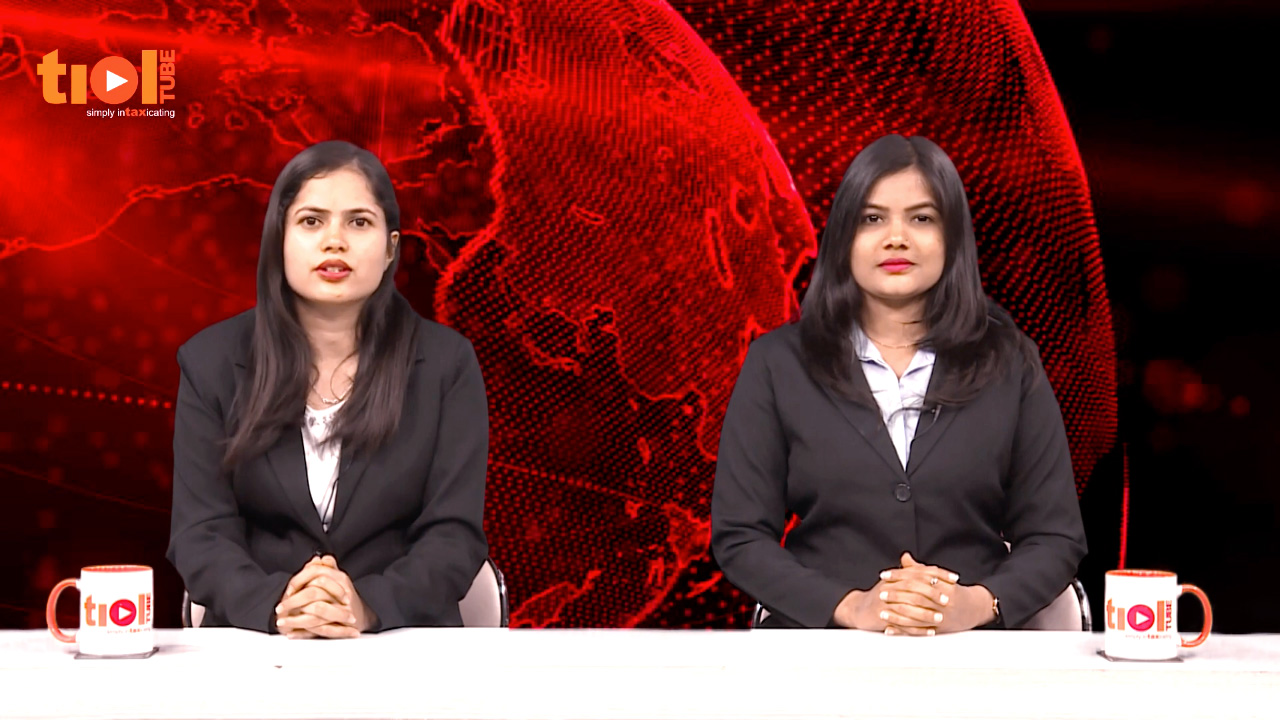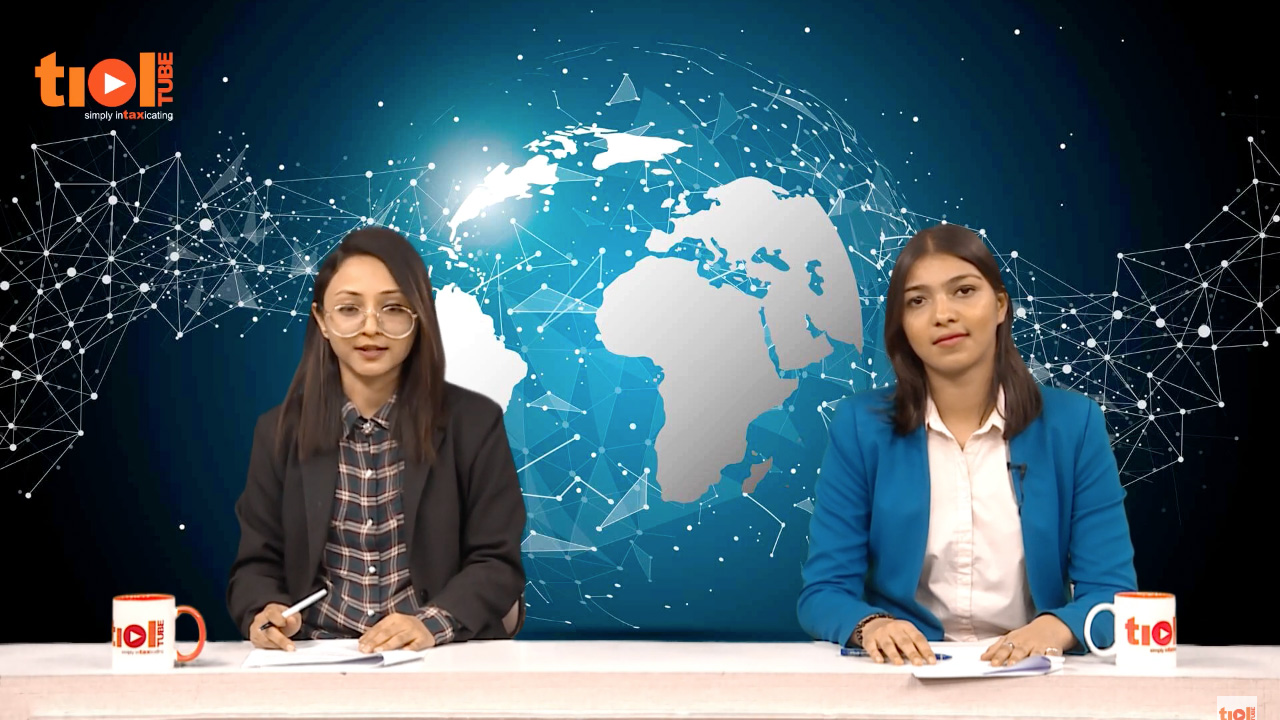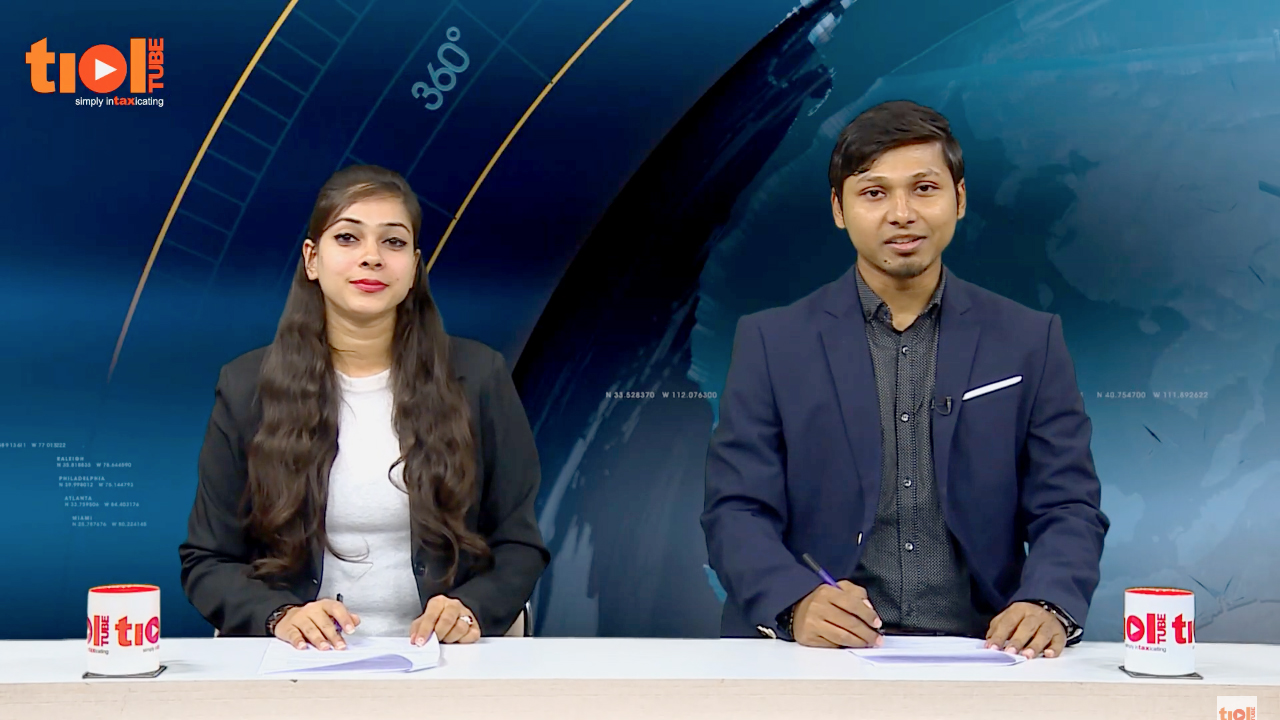2019-TIOL-2950-HC-AHM-GST
Synergy Fertichem Pvt Ltd Vs State of Gujarat
GST - The present writ petitions were filed seeking release of goods and the vehicle ferrying them, which had been detained by the Revenue in exercise of powers u/s 129 and 130 of the CGST Act - The petitions also sought that directions be issued to quash the detention notices and the orders passed pursuantly - The petitioners also claimed that the Revenue authorities sought to confiscate the goods and the vehicle as per Section 130, whuch was entirely arbitrary and not involving application of mind.
Held: Although both Section 129 and Section 130 begin with a non obstante clause, yet a harmonious reading of both, keeping in mind the object and purpose behind their enactment, indicates that they are independent of each other - Section 130 which provides for confiscation of goods or conveyance is not in any manner, dependent or subject to Section 129 - Both provisions are mutually exclusive - Moreover, in Section 130, the phrase with an intent to evade the payment of tax is of importance - When the law requires an intention to evade payment of tax, then it is not mere failure to pay tax and it has to be something more - The term evade in the context means defeating the provisions of law of paying tax - It is made more stringent by the use of the term intent - The assessee must deliberately avoid payment of tax which is payable as per law - However, the element of mens rea cannot be read into Section 130 - Besides, for issuing confiscation notice u/s 30 at the threshold, the case has to be of such a nature that on the face of the entire transaction, the authority concerned should be convinced that the contravention was with definitee intent to evade payment of tax - The action should be in good faith and not a mere pretence - In plain terms, the Revenue has to make a very strong case and mere suspicion is not enough to invoke Section 130 straightaway - Even if the goods or conveyance is released on payment of tax and penalty u/s 129, later if the authorities find something incriminating against the owner of the goods in the course of the inquiry, if any, then it is permissible to initiate the confiscation proceedings u/s 130 of the Act - For purposes of Section 129(6) of the Act, it is not necessary for the Revenue to establish intent to evade payment of tax - If the tax and penalty as determined u/s 129 is not deposited within the statutory time period, then the goods and conveyance would be liable to be auctioned - It is seen that all the petitions are at the stage of notice for the purpose of confiscation - In all cases, the court directed interim release of the goods as well as the conveyance - Such release is subject to the final outcome of the confiscation proceedings - The court has not delved into individual petitions for finding out whether the notice for confiscation u/s 130 is justified - Only general principles have been laid down regarding the application of Section 129 and Section 130 of the Act - The issue of as to whether or not the confiscation notice merits being quashed may be notified before the court taking up tax matters: HC
Held: The foremost task of a court in interpreting a statute is to ascertain the legislative intent, actual or implied - It then must strive to interpret the statute so as to promote and advance the object and purpose of the enactments - If two constructions are possible upon the language of the statute, the court must choose the one which is consistent with good sense and fairness and avoid the other which makes its operation unduly oppressive, unjust or unreasonable or which would lead to strange or inconsistent results or induce an element of bewildering uncertainty and practical inconvenience in the working of the statute - Where necessary, the court may even depart from the Rule that plain words be interpreted as per their plain meaning - To avoid patent injustice, anomaly or asburdity, the Court would well be justified in departing from the so-called golden rule of construction so as to give effect to the object and purpose of the enactment by supplementing the written word if necessary - Hence the legislature should examine the provisions of Section 129 and Section 130 to amend them and remove certain inconsistencies: HC
- Writ petitions disposed of: GUJARAT HIGH COURT
2019-TIOL-2948-HC-KOL-GST
Arvind Kumar Munka Vs UoI
GST - The petitioner is a Chartered Accountant - He claimed to have been falsely arraigned as an accused on the allegation that he connived with other accused persons for issuing GST invoices without actual supply of goods to the buyers - It was alleged that such activities caused a loss of about Rs 98 crores - The petitioner was subsequently arrested and was produced before the jurisdictional CJM, before whom the petitioner filed an application for bail - However, the same was rejected - Thereafter, the petitioner filed for bail before the jurisdictional Sessions Judge, but its application was rejected again, on account of the nature and magnanimity of the unlawful acts done by the accused including the petitioner, as emerging from the final report of the investigating agency - It was also found that there were possiblities of attempts to influence witnesses or destroy the evidence or evade further investigation and trial - The present petition was filed seeking bail - It was claimed that both courts erred in not granting bail on the 61st day in terms of Section 167 of the CrPC, that the offence u/s 132 of the CGST Act is bailable and that without previous sanction by the Commissioner for filing charge sheet, the entire proceeding had been rendered otiose.
Held - Considering the decision of the Apex Court in Uday Mohanlal Acharya in respect of indefeasible right for being released on bail upon default in filing challan/chargesheet within the prescribed time frame, the same is not applicable to the facts and circumstances of the present case as the petitioner was remanded in custody and bail application was filed on the same day of submission of final report - Ergo, the indefeasible right under proviso to Section 167(2) of the CrPC for release of the petitioner in default in filing challan within the prescribed time does not arise in view of the Apex Court's decision to the effect that the indefeasible right accruing to the accused in such a situation is only prior to the filing of the challan and does not survive or remain enforceable on the challan beiong filed, if already not availed of - Moreover, the legislative intent stemming from the provision of Section 132 is clear and leaves nothing to supposition except that the authority empowered to interfere with the liberty of a person by issuing an order of arrest on reasonable belief about necessity of arrest u/s 69(1) of the CGST Act, is also statutorily obligated to decide, albeit on logical assessment of facts, that the person concerned is to be prosecuted - Such requirement of sanction must be evident from the records and must be backed by reasons which are prima facie intelligently acceptable - In the present case, the loss caused to the Govt exchequer amounts to about Rs 141.76 crores - Therefore considering such huge economic offence, the petitioner should not be enlarged on bail - Moreover, the decision of this court in Sanjay Kumar Bhuwalka vs Union of India is also distinguishable from the facts and circumstances of the instant case - Hence the petitioner is not entitled to be released on bail - Nonetheless, the petitioner is entitled to seek compounding of offence u/s 138 of the CGST Act: HC
- Bail petition dismissed/In favor of Revenue: CALCUTTA HIGH COURT
2019-TIOL-498-AAR-GST
Infobase Services Pvt Ltd
GST - The applicant had been engaged by the Tollygunge Club Ltd for supplying service of printing Directory of Members 2020 - It also entered into an agreement for marketing of advertisement space for the directory - The applicant would have to finance the project cost of printing the Directory from the proceeds from sale of space for advertisements - If it exceeds the final project cost for printing, the applicant will gain 75% of the differential amount - If it does not cover the cost of such printing, the applicant would have to bear losses to such extent - The applicant approached the AAR seeking to know if procurement of advertisements for the directory is classifiable as selling of space for advertisement in Print media and whether Sr No 21(i) of Notfn No 11/2017-CT(R) as amended, is applicable.
Held - The applicant is making a mixed supply to the Tollygunge Club of printing service (SAC 998912) and intermediary service for selling space for advertisement on behalf of the club (SAC 998362) - The same shall be treated as supply of such intermediary service taxable @ 18% under Sr No 21(ii) of Notfn No 11/2017-CT(R) as amended: AAR
- Application disposed of: AAR
2019-TIOL-497-AAR-GST
Ambo Agritec Pvt Ltd
GST - The applicant is a manufacturer of vanaspati, refined oil and biscuits - The applicant also manufactures non-edible intermediary product for confectionary industry, prepared from dough of wheat flour, sugar, food grade sodium bicarbonate and water, cut into tiny Kaju shaped pellets - The applicant approached the AAR seeking to know the classification of the intermediary product.
Held - The applicant is supplying a mixture and dough of wheat flour, sugar and water, cut into a specific shape, which is dried and hardened by heating - Hence the same is classifiable under tariff item 1901 20 00: AAR
- Application disposed of: AAR
2019-TIOL-78-NAA-GST
Director General of Anti-profiteering Vs Caroa Properties LLP
GST - Anti Profiteering - The applicant filed an application before the Standing Committee on Anti Profiteering u/r 128(1) of the CGST Rules 2017, claiming to have purchased a flat in a project being developed by the respondent - The applicant alleged that the respondent had not passed on the benefit of input tax credit by way of commesurate reduction in price of flat as per Section 171 of the CGST Act - Subsequently, the matter was referred to the DGAP - Considering the evidence put forth by the respondent, the DGAP held that the respondent had benefitted from additional ITC to the tune of about Rs 4.25% of the total turnover - Accordingly, the DGAP computed the profiteered amount at about Rs 9.03 crores.
Held: It is seen that the computation of profiteered amount is in respect of 473 home buyers whereas the respondent booked 493 units till 31.12.2018 - 20 customers who also booked flats and also paid the booking amounts in the pre-GST period have not paid any amount during the post GST period, i.e., the period under investigation - Hence the benefit of ITC in respect of these 20 units is to be calculated when the consideration is received from such buyers taking into account the proportionate ITC in respect of such units - Hence the respondent is directed to commensurately reduce the prices of its units as per provisions of Rule 133(3)(a) - Moreover, it is evident from facts that ratio of ITC as a percentage of turnover that was available to the respondent during the pre-GST period from April 2014 to March 2016 was 1.54% and during the post GST period from July 2017 to December 2018, the same was 5.79% and therefore during the post GST period, the respondent benefited from additional ITC to the extent of 4.25% of the turnover - As per mandate of Section 171(1) of the CGST Act, the respondent is required to pass on benefit of such additional ITC to the recipients - The respondent claimed that those customers who booked flats between 01.07.2017 to 01.02.2018 were passed on GST benefit of 6% which was factored in the proces which was duly recorded in the cost sheets itself which was part of builder buyer agreement - Such claim of the respondent is incorrect since the applicant clearly stated that all other buyers and the applicant itself were not passed on benefit of ITC rate reduction - The respondent also claimed that the DGAP incorrectly computed the profiteered amount as it should have taken the relevant period vis a vis the recalibrated base price excluding the GST amount - Such claim also is not tenable since the respondent not only charged extra amount from buyers which otherwise should not have been charged due to commensurate reduction in prices as the respondent availed benefit of additional ITC by recalibrating the prices but also illegally charged GST on this extra amount - The customers would have paid less had the respondent not charged additional GST - Since the respondent denied benefit of ITC by charging additional tax, it was rightly included in the profiteered amount - Moreover, as the respondent discharges GST liability every month through returns filed, from the ITC available, the respondent is also legally bound to pass on benefit of ITC to customers every month - The respondent cannot employ two yardsticks while using ITC benefit itself and when extending benefit to buyers - In case the respondent proposes to pass on ITC benefit after completion of project, the respondent should also avail the same after completion of the project - Therefore, such benefit be passed on periodically as per Section 171(1) of the CGST Act and the provisions of Rule 5 of CCR have no application - The respondent is directed to reduce prices of its units commensurate to reduction in tax rates as per Rule 133(3)(a) and is directed to pass on ITC benefit of about Rs 9.03 crores to the 473 recipients - SCN be issued proposing to impose penalty u/r 133(3)(d) r/w Section 171(3A) for contravening provisions of Section 171(1) of the Act: NAA
- Application disposed of: NAA
UTGST RULE NOTIFICATION
06/2019
Vishnu Pandit, Addl Commissioner, Vadodara Zone appointed as Member for AAR








